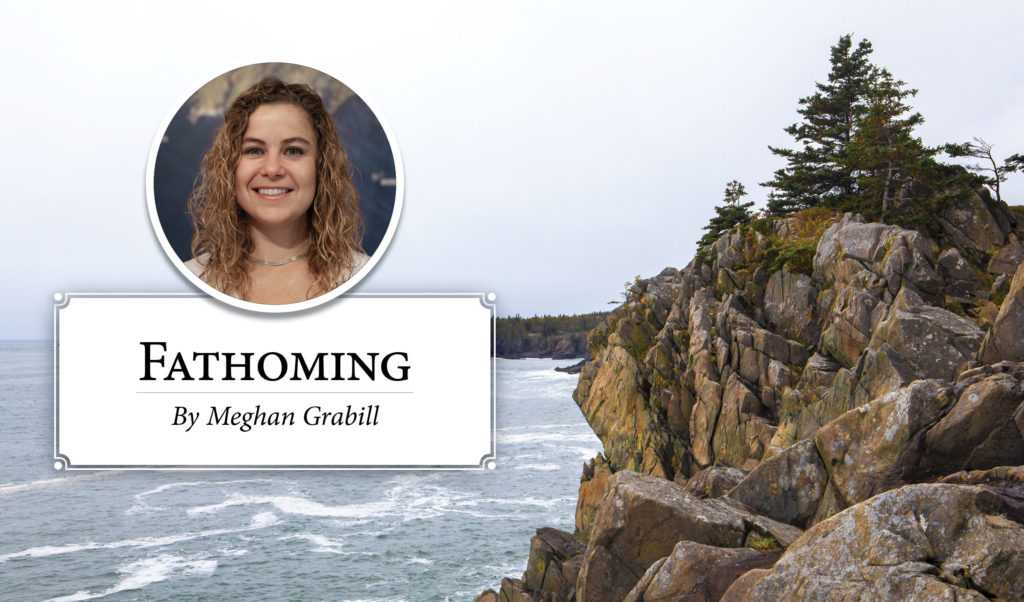By Meghan Grabill
Recent reports have suggested that Maine’s economy is highly vulnerable to the impacts of the coronavirus. On the surface, data indicators can point to many different outcomes in an approachable and easy-to-understand way. But this simplicity leaves no room for nuances like resiliency.
Many of Maine’s characteristics have been cited as reasons for the dire predictions. These include the high percent of population above 65 (19.4 percent), the reliance on retail and tourism (22 percent of state GDP), the high number of small businesses (about 40,000 with fewer than 100 employees), and the high number employed in high-contact occupations (23 percent in jobs requiring physical interaction with large numbers of people like a dental hygienist or physical therapist).
All of these are statistically accurate observations about Maine. Taken together into a risk analysis, they point to high risk to economic fall-out from the pandemic shutdowns.
However, what these statistics fails to reveal is how likely Maine is to succumb to the risk, and how well the state will be able to rebound on the other side.
A community that is resilient is able to cope with, withstand, and quickly recover from a crisis or threat. The depth of what that means is impossible to capture in a report or data analysis.
In a recent interview, Shannon Byers, the director for the Maine Small Business Development Center, said a booming economy breeds complacency. When markets are strong, there is no incentive to think outside the box. An economic downturn breeds innovation. Business owners are forced to stop and think about what they’re doing, what’s working and what isn’t. And what, given our new reality, is possible for their business.
Byers believes many businesses are ready to iterate, pivot, and survive this downturn.
Liz Lovell of North Haven Brewing Company was hoping to be planning for future investments; instead, she is working to pivot for this new economic reality.
“Going into our fourth year, we were just starting feel like we could plan well for the summer, had a good sense of how many pints the second week in August we could plan to sell, but now it feels like we’re rebuilding our whole business model,” she said.
The business relies on in-person traffic in a tasting room, which is small, intimate, and pre-pandemic, was a key gathering place on the island. Luckily enough, the business started a small canning operation last year. It’s fairly labor intensive, and not as profitable as selling a pint, but it’s the only safety-conscious, reasonable option for sales.
About a month ago, the business closed the doors to the tasting room and launched a new section on the website to take online sales and offer a door-to-door delivery system.
“We calculated exactly how many cans per week in July and August we need to sell to break-even this summer, and just holdfast,” Lovell said. “So that’s what we’re planning to do.”
Other small business owners also are looking for opportunity. Alec Shaw owns Swift Cleaning, a house cleaning service on Peaks Island. Since the success of an island cleaning business depends on vacation rentals, and vacation rentals depend on tourism, his business is facing a summer of uncertainty. So, Shaw is investing in himself, gaining new skills, and thinking about how to apply those to becoming a resilient entrepreneur.
Shaw is using a grant award for an online course to help him start a new business, Shawsome Sports, dedicated to increasing the island’s access to health and fitness opportunities.
“Promoting and supporting community health and fitness is very important now,” he says, “and will only continue to grow in importance as we move forward through this time.”
This has allowed him to learn to build his online presence and a local, virtual fitness community. This move will help diversify his income.
Maine may appear at high risk for economic impacts from the coronavirus. And whenever the national economy takes a downturn, hardships and difficulties will come to many of our communities. But statistical analysis cannot predict the response of individuals, communities, business owners, and leaders along the coast. Resiliency is difficult to capture with numbers.
For information on the grant: Tom Glenn Community Impact Fund administered by the Small Business Team at the Island Institute islandinstitute.org/tom-glenn-community-impact-fund
For more statistics on the coast of Maine visit islandinstitute.org/waypoints.
For more stories about the business along the coast of Maine visit islandinstitute.org/blog.
Meghan Grabill is a community development officer working on data analytics and translation for the Island Institute, publisher of The Working Waterfront.





